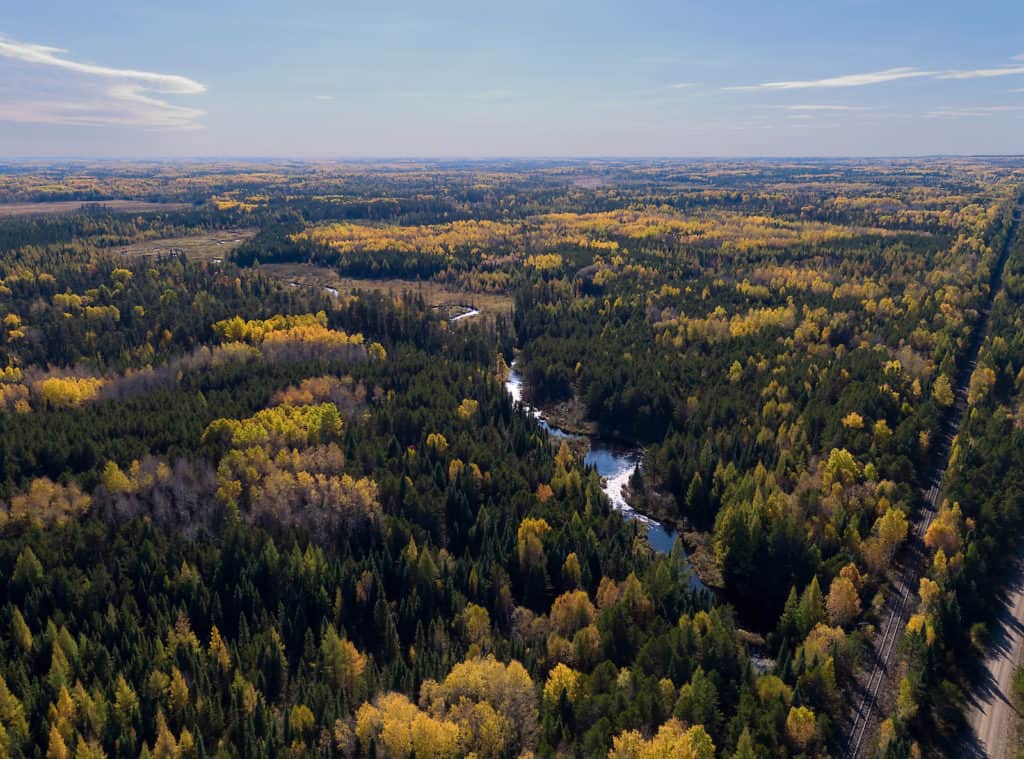
Legal challenges relating to two proposed copper-nickel mines in northeastern Minnesota have taken significant steps forward in recent weeks. Both suits are focused on how public resources like land and mineral rights are conveyed to private companies seeking to operate mines.
The lawsuits are focused on mineral leases issued to Twin Metals, and a land exchange that clears the way for PolyMet.
Both issues center on the federal government, which has sought to expedite mining in northern Minnesota since the election of President Donald Trump. Last week, Trump visited the state and touted his support of mining.
“Under the previous administration, America’s rich, natural resources were put under lock and key. And thousands of acres in Superior National Forest, jobs, and everything else, were just taken away.” Trump said at an economic roundtable in Burnsville. “Last June, I traveled to Duluth and announced that we would be taking the first steps to rescind the federal withdrawal in Superior National Forest and restore mineral exploration for the miners and the workers of Minnesota.”
The day after making those comments, a motion was filed to halt the process of restoring mineral exploration and mine development.
Twin Metals mineral leases
Plaintiffs in a lawsuit challenging the Twin Metals project, which would be located near the South Kawishiwi River, a few miles from the edge of the Boundary Waters, asked a federal judge to rule on the case without further litigation. U.S. District Judge Trevor McFadden, a Trump appointee, is presiding over the case.
“In addition to a solid scientific and environmental case against sulfide mining, we are presenting a solid legal argument against the reinstatement of these expired mineral leases,” Friends of the Boundary Waters Wilderness wrote.
The recent motion asks the judge to overturn the Department of Interior’s 2018 reinstatement of Twin Metals’ leases, which had been rejected for renewal by the Obama administration in 2016.
“The 2018 Reversal must be vacated because the Bureau lacks authority to reinstate the expired leases,” the motion reads. “There is no express authority for reinstatement, and an agency’s inherent authority to correct errors does not apply where, as here, there was no ministerial error or inadvertent failure to consider relevant factors in the prior decision.”
The case was filed last June on behalf of Voyageurs Outward Bound School, the Friends of the Boundary Waters, the Wilderness Society, Northeastern Minnesotans for Wilderness, the Izaak Walton League of America, the Center for Biological Diversity, and numerous businesses that depend on the wilderness.
PolyMet land exchange

Also last week, the Minnesota Center for Environmental Advocacy (MCEA) and partners argued for a halt to any work at the PolyMet mine site while lawsuits about a land exchange can be heard.
At the heart of the debate is a trade the federal government made with the mining company to trade more than 6,000 acres of Superior National Forest land for other lands in northeastern Minnesota.
MCEA says the land deal undervalued the land PolyMet acquired, saying another $6 million in land should have been provided to the Forest Service for an even trade. An appraisal of the land PolyMet wished to acquire did not take into account the minerals the company seeks to extract.
“To put it simply – if you own a home, your home’s proximity to a lake would affect its value,” MCEA wrote. “Likewise, if you own a mining company, available land’s proximity to mineral leases you already own should affect its value.”
The arguments were made in a case more than two years old that had been paused by the judge while waiting for potential Congressional action. Judge Joan Ericksen, a President George W. Bush appointee, recently ended that pause because no legislation has been passed.
Because PolyMet has now received its permits to begin construction, the plaintiffs asked the judge to prevent any “ground-disturbing work” at the site until the legal issues have been resolved. Judge Ericksen will rule on the request at a later date.
References
- Legal Action to Stop the Trump Administration’s Attack on the BWCA, April 17, 2019 – Friends of the Boundary Waters Wilderness
- Minnesota group ramps up court challenge to Trump rulings on Twin Metals mining leases, April 17, 2019 – Star Tribune
- Motion for Summary Judgment, Earthjustice (PDF)

